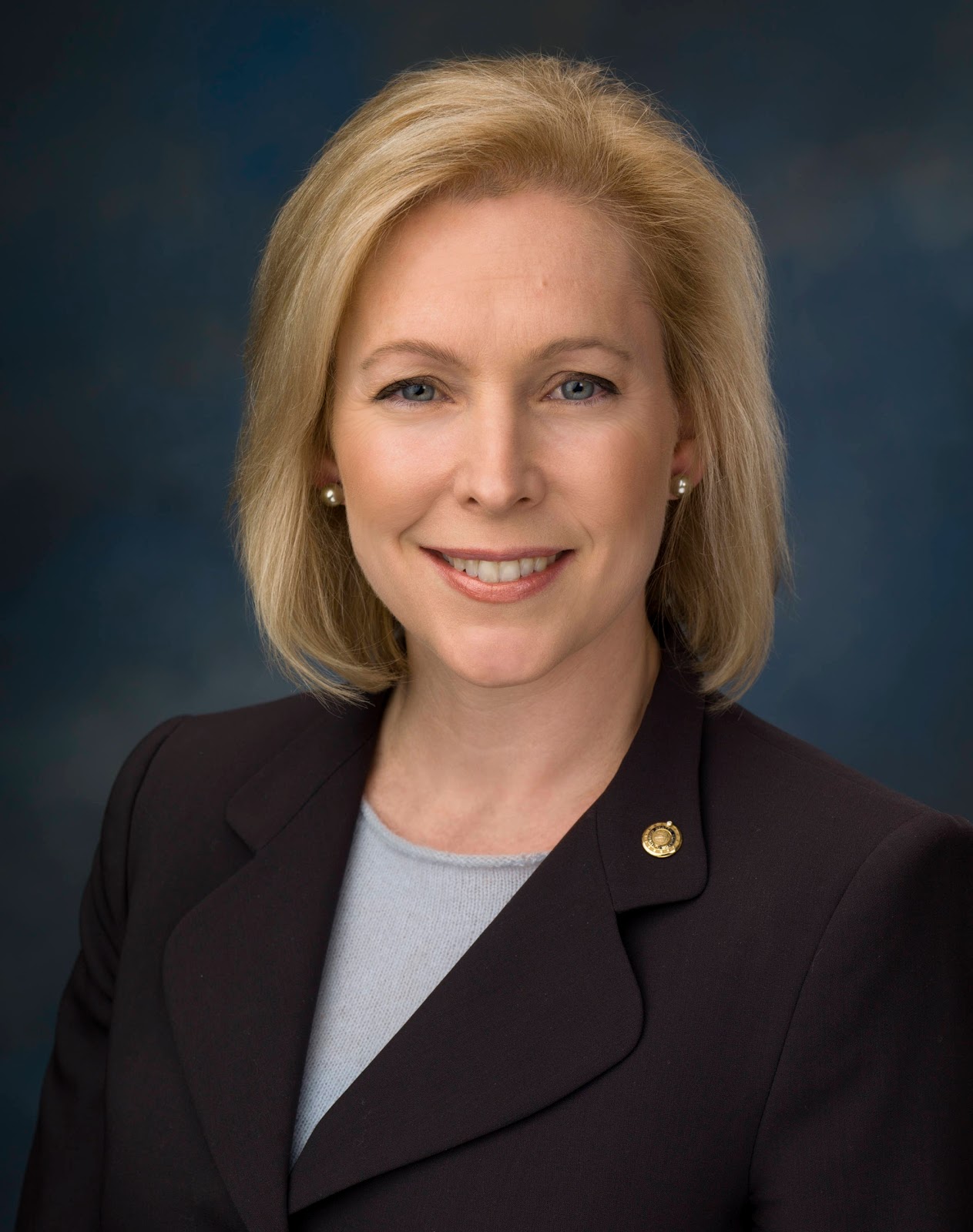
CHEEKTOWAGA — Today, U.S. Senator Kirsten Gillibrand announced her policy package to slash prescription drug prices, the “Gillibrand Prescription for Lower Drug Prices,” and pushed congressional leadership to take action on reducing drug prices. Joined by Cheektowaga Senior Center Director Kerry Peek, Erie County Commissioner of Senior Services Angela Marinucci, Executive Director of the Seneca Babcock Community Association and Councilmember Brian Pilarski, and New York StateWide Senior Action Council Western New York Chapter President Ann Converso, Gillibrand outlined the tenets of the bill package, which would help tackle the high cost of prescription drugs.
“While our nation is recovering from the pandemic, drug prices remain unacceptably high, which puts a heavy financial burden on older adults and families in Cheektowaga and across the country,” said Senator Gillibrand, member of the Aging Committee. “I am releasing the ‘Gillibrand Prescription for Lower Drug Prices’ plan to provide a framework for slashing drug prices. From fighting price gouging to importing affordable drugs from Canada to enabling Medicare to negotiate drug prices, this plan will help us bring down costs for countless Americans.”
“Older New Yorkers are worried about being able to afford their Medicare premiums and their prescription drug costs. We are pleased to stand with Sen. Gillibrand today because she has heard these concerns and knows that economic security for all NYers includes health care benefits that meet their needs,” said Ann Converso, RN, President, Western New York Chapter of New York StateWide Senior Action Council. “We thank her for working to raise the income eligibility to 200%FPL for the Medicare Savings Program and the low income subsidy/Extra Help with prescription drug costs. This measure will put money back into the pockets of lower income Medicare enrollees and help them make ends meet. Importantly, her efforts to reign in the price of prescription drug costs through other methods, including removing the ban on Medicare negotiating prices, will be transformative for years to come and will be a relief for all New Yorkers.”
“Many of our older adults with common chronic illnesses like diabetes and high blood pressure have seen a dramatic increase of out-of-pocket costs for guideline-recommended medications,” said Executive Director of Seneca Babcock Community Association and Councilmember Brian Pilarski. “Out-of-pocket drug costs for our older adults need to be reined in. A senior on a fixed income should not have to choose between their medications and three square meals a day or try juggling which medication can they miss with the least negative impact. I applaud Senator Gillibrand for stepping in to protect older adults from unfairly shouldering the burden of high drug prices.”
“Erie County has a large senior population and our Department regularly hears from older adults about the pressures they face due to high out-of-pocket drug costs,” said Erie County Commissioner of Senior Services Angela Marinucci. “These are fixed-income individuals already being squeezed by higher food and fuel prices, and while they must have these medications the rising costs are forcing them to make difficult decisions that they should not have to. This is a big area of concern for our older adults and I thank Senator Gillibrand for her focus on bringing prices down and helping our older adults.”
The core pieces of the “Gillibrand Prescription for Lower Drug Prices” are:
- Reimagine financial assistance for Medicare. Legislation tocreate the Medicare Cost Assistance Program, a new, streamlined program to provide assistance with Medicare Part A and Part B premiums and cost-sharing for low-income individuals. This would reimagine financial assistance for Medicare Part A, Part B and Part D. The legislation would also expand and streamline administration of the Extra Help program to provide premium and cost-sharing assistance to eligible low-income individuals with Medicare Part D.
- Review brand-name price gouging. Legislation that would level the market for Americans purchasing prescription drugs by pegging the price in the United States to the median price in Canada, the United Kingdom, France, Germany and Japan.
- Empower Medicare to negotiate drug prices. A bill that directs the Secretary of Health and Human Services to negotiate lower prices for prescription drugs under Medicare Part D.
- Import lower-cost drugs from Canada. Legislation to allow patients, pharmacists and wholesalers to import safe, affordable medicine from Canada and other major countries.
- Expand subsidies to seniors living in U.S. territories. Legislation that would make Medicare beneficiaries in U.S. territories, such as Puerto Rico, eligible for the Medicare Part D Low Income Subsidy program. Under current law, low-income Medicare beneficiaries in Puerto Rico and other U.S. territories are ineligible for Medicare Part D subsidies. This program, known as “Extra Help,” provides federal subsidies to help low-income seniors with their monthly premiums and other out-of-pocket prescription drug costs.
Under current law, the secretary of HHS is prohibited from negotiating lower drug prices on behalf of Medicare Part D beneficiaries. In contrast, other government programs, like Medicaid and the Department of Veterans Affairs (VA), are allowed to negotiate. According to a recent report by the Government Accountability Office, Medicare paid twice as much for the same prescription drugs as the VA in 2017.
In 2020, five of the largest pharmaceutical companies in the U.S. made nearly $45 billion in profits. That same year, in the midst of a twin public health and economic crisis, drug makers raised the prices of more than 860 prescription drugs by 5%, on average. In 2020, the average annual cost of therapy for widely used specialty drugs was more than $84,000. This is nearly three times the median income for people on Medicare and more than four and half times the average Social Security retirement benefit.
All WNY is made possible thanks to coffee and sleep deprivation.
We appreciate your readership. We like money, too.

